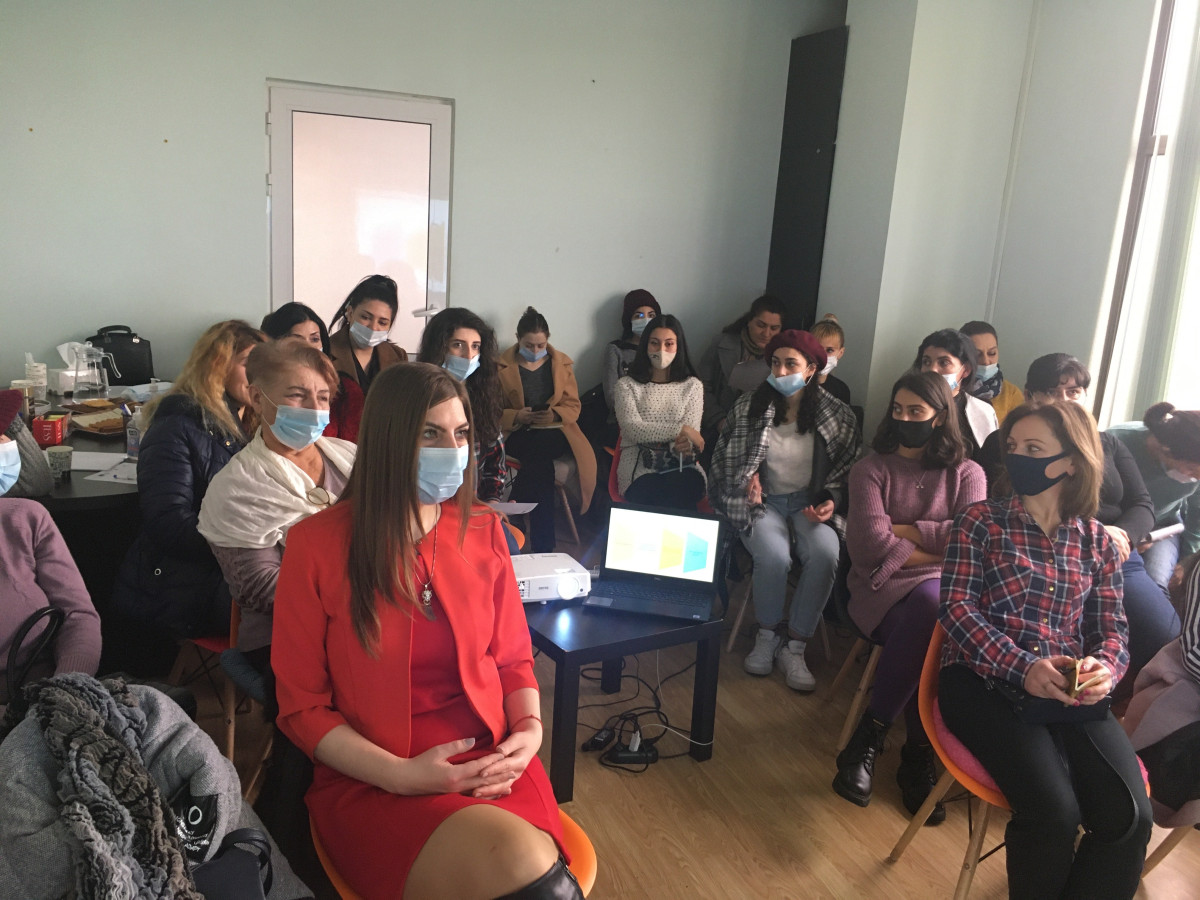Helping Armenia's Female Entrepreneurs Flourish
Published: Jan 26, 2021 Reading time: 3 minutes Share: Share an articleFor the last few months, People in Need (PIN) has been contributing to the EU-funded COVID-19 Solidarity Programme for the Eastern Partnership project, which aims to mitigate the impact of the coronavirus by improving the socio-economic resilience of vulnerable groups in the Shirak region of Armenia. During the first phase of the project, PIN has been working to promote female entrepreneurship. Three beneficiaries – Lena, Tamara, and Tatyana – share their inspiring stories.

Lena has been actively involved in environmental protection since she was a student, and it’s thanks to activists like her, together with organisations advocating for better environmental protections, that the government of Armenia has committed to banning the use of plastic bags from 2022.
While this is a great step forward, Lena knows that much work remains to be done to increase the use of environmentally-friendly products. To help move things forward, Lena applied for a grant from the Women’s Rights House, one of three non-governmental organisations participating in PIN’s economy recovery project, with dreams of turning her ecological activism into a business. Lena would like to create reusable tote bags as an environmentally-friendly alternative to plastic bags. Once she has completed training in social entrepreneurship, finance, marketing, and other relevant topics successfully, Lena will compete for a grant - be provided with the equipment needed to begin production of the bags.
She will not, however, be tackling this initiative alone. Lena’s mother, who has a passion for sewing but has never been given a chance to work, will finally be able to put her skills to use outside of the home. Both Lena and her mother recognise that big changes begin with small steps.
Tamara’s goals are equally bold. Unable to find a job in her field after graduating from university, Tamara was able to pursue her passion for baking and selling gata, a traditional Armenian pastry. She began distributing her homemade gata to local bakeries and it was an immediate hit with customers; soon, demand outpaced production. But Tamara lacked entrepreneurship experience, equipment such as a large fridge and oven, and sufficient space to grow her operation. Much like Lena, Tamara learned about the entrepreneurship training being provided by the Women’s Rights House.
Thanks to the capacity building session on how to establish and run a successful start-up, Tamara received training in analysing supply and demand, managing customer relationships, positioning herself in the market, branding her products, and other important business skills.
"Armenian traditional gata was promoted more and more among our trainees," she says, noting that demand for her gata has reached Yerevan and abroad. "After completing the training sessions, I feel more confident about my work. I have plans to enlarge the business and the team.”
Similarly, for Tatyana, the entrepreneurship courses at the Women’s Rights House were a lifeline to a brighter future. Tatyana is creative by nature, and very passionate about books and reading. Her goal is to make reading attractive to children and young adults by creating eye-catching, handmade bookmarks in lively colours. After each training session, Tatyana tried to put her new skills to use while upgrading what she calls her “little creatures.” She spent her evenings turning the images in her mind into bookmarks. Tatyana believes women are very strong and can bring about change by inspiring other young girls and women to listen to their inner voices and make their dreams come true.
The COVID-19 Solidarity Programme for the Eastern Partnership project continues to help Armenian women acquire the necessary equipment and skills to become entrepreneurs. The capacity-building group includes 25 women between the ages of 18 and 45 from the Shirak region. Ten of these women will receive grants to start their own business.

